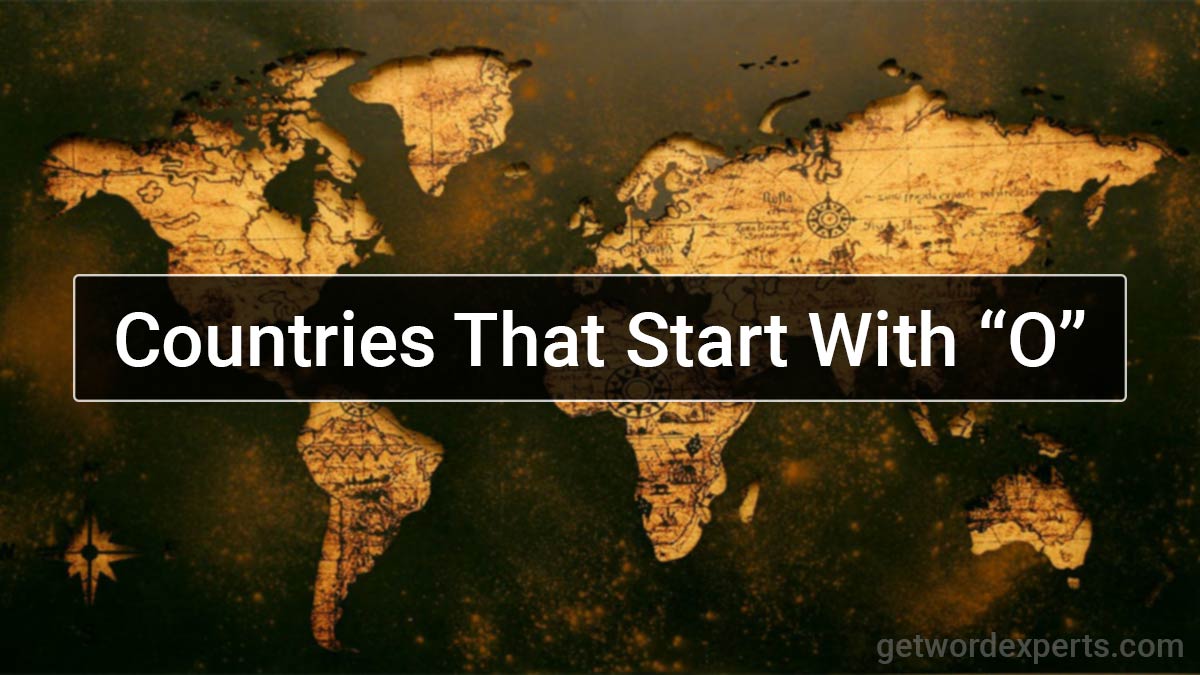Countries That Start With O are extremely rare, with Oman being the only country in the world that fits this category. Oman, nestled in the heart of the Arabian Peninsula, boasts a wealth of historical landmarks, vibrant cultural traditions, and stunning landscapes that reflect its rich heritage.” Spanning 119,000 square miles, it’s home to around 4.6 million people. The story behind this unique country’s name, history, and development is fascinating and reveals much about its strategic importance and cultural heritage.
Countries That Start With O: Oman
History of Oman
Oman’s history stretches back over 100,000 years, making it one of the oldest inhabited regions in the world. As the only entry under “Countries That Start With the Letter O,” Oman gained its modern identity in 1650 after gaining independence from Portuguese control. The country’s history as a significant power in maritime trade routes highlights its importance in connecting the Arabian Peninsula with Africa, India, and beyond.
- Ancient Roots: Evidence of ancient civilizations in Oman includes archaeological sites dating back to the Stone Age.
- Formation of the State: The modern state of Oman began to take shape in the 7th century but was fully unified in the 17th century under the leadership of Imam Sultan bin Saif.
- Astrolabe Invention: Oman is believed to have contributed to the development of the astrolabe, an ancient tool used by early astronomers and sailors to observe and calculate the positions of stars and planets. This highlights the country’s contributions to science and navigation.
- Oman’s Rich Maritime Heritage: Oman has a deep connection with the sea, having been a key player in ancient maritime trade routes. Omani sailors were renowned for their navigational skills, forging strong trade links with regions like Africa, India, and Southeast Asia. The maritime legacy continues to shape the social and cultural character of Oman today.
Geographical Location of Oman
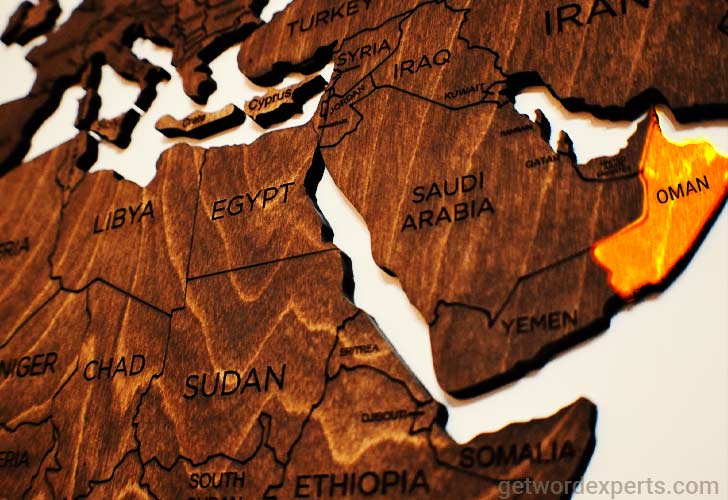
Oman, as the only country that starts with the letter O, occupies a strategic position on the southeastern coast of the Arabian Peninsula.
- North: Bordered by the United Arab Emirates.
- Southeast: The Arabian Sea, giving Oman a long coastline and access to major shipping routes.
- West: To the southeast, Oman enjoys extensive access to the Arabian Sea, making it a crucial player in global maritime trade. To the west, it shares borders with Saudi Arabia and Yemen, linking it to the greater Arabian Peninsula Oman’s diverse geography, from the rugged Al Hajar Mountains to the vast Empty Quarter desert, has significantly influenced its climate, economy, and lifestyle.
Naming and Creation of Oman
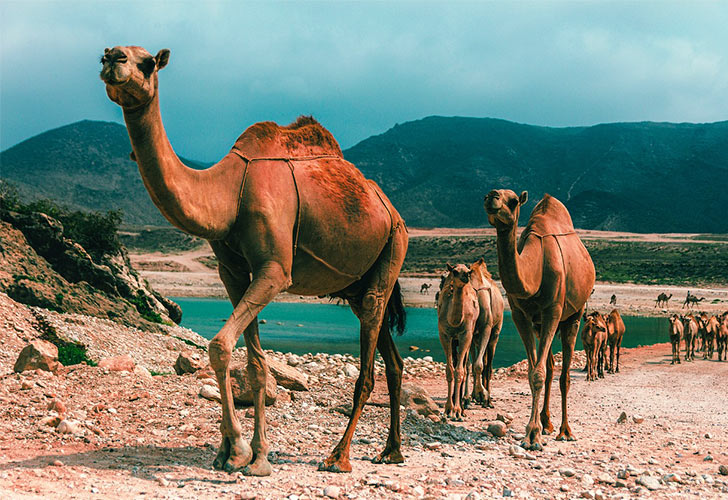
The name ‘Oman’ is believed to have originated from early Arab settlers, possibly named after a region in Yemen, who established themselves in the area long ago, lending the country its modern name. As the sole member of “Countries That Start With the O,” Oman was unified under a single rule in the 7th century, with its modern recognition occurring in the 17th century.
Population of Oman
Oman’s population of approximately 4.6 million people is a blend of different ethnic groups, including Arabs, Baluchis, and South Asians. This diversity is reflected in the country’s culture, cuisine, and social fabric, marking it as a unique entry in “Countries That Start With the Letter O.”
- Demographics: The population includes a significant number of expatriates, particularly from South Asia, who contribute to the workforce.
- Urbanization: Muscat, the capital, is the most populous city, followed by cities like Salalah and Sohar.
Economy of Oman
As the only country among “Countries That Start With the Letter O,” Oman’s economy has traditionally been based on maritime trade, agriculture, and fishing. However, since the 20th century, oil and gas have become the backbone of its economy.
- Oil and Gas: Oman is a moderate oil producer but has invested in diversifying its economy through industries such as tourism, logistics, and manufacturing.
- Economic Diversification: The government’s Vision 2040 plan aims to reduce dependency on oil and promote sustainable growth in other sectors.
Socioeconomic and Political Situation in Oman
Oman is known for its political stability, a rarity in a region often marked by turmoil. As the only entry in “Countries That Start With the Letter O,” Oman is an absolute monarchy, with the Sultan serving as both head of state and government.
- Governance: Oman is led by Sultan Haitham bin Tariq, who has continued the modernization policies of his predecessor while maintaining Oman’s neutrality in regional conflicts.
- Social Development: The country has made significant strides in education, healthcare, and infrastructure development.
Culture of Oman
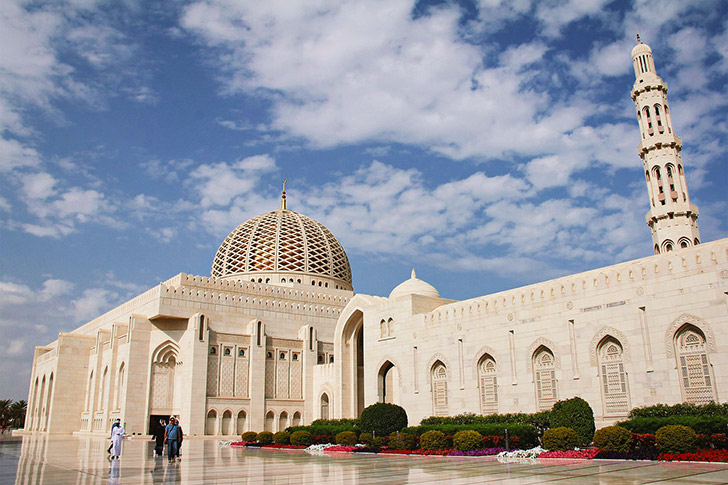
Oman’s culture, as the sole nation under “Countries That Start With the Letter O,” is a blend of its Islamic heritage and its long history of trade and interaction with other cultures. Traditional music, dance, and crafts are integral to Omani life, with the country placing a strong emphasis on preserving its cultural heritage.
- Language and Religion: Arabic is the primary language spoken in Oman, while Islam serves as the official religion. Ibadism, a unique branch of Islam, is practiced by the majority of Oman’s population, distinguishing it from many other Muslim-majority countries.” Cultural and religious celebrations play an important role in Omani life, with events like the Muscat Festival highlighting the nation’s rich heritage through traditional performances, art, and crafts.
- Festivals and Traditions: Oman embraces a range of cultural and religious celebrations each year, with the Muscat Festival standing out as a highlight, featuring traditional crafts, performances, and arts from across the country.
- Omani Cuisine and Culinary Traditions: Omani cuisine is a rich blend of flavors that reflects the country’s history and cultural diversity. Traditional dishes often include rice, grilled meats, and seafood, with ingredients like saffron, cardamom, and dried lime playing central roles in its seasoning. Popular dishes include Shuwa, a slow-cooked marinated lamb dish, and Majboos, a spiced rice dish with meat or fish. Omani meals are typically served with dates and coffee, symbolizing hospitality. The cuisine is influenced by Arabian, Indian, and East African culinary traditions, making it a unique fusion of flavors and techniques.
- Unique Ibadism Sect: Oman is the only country in the Muslim world where Ibadism is the dominant sect. This form of Islam emphasizes tolerance and peaceful coexistence, which has greatly influenced the country’s political stability and social harmony.
Tourism in Oman
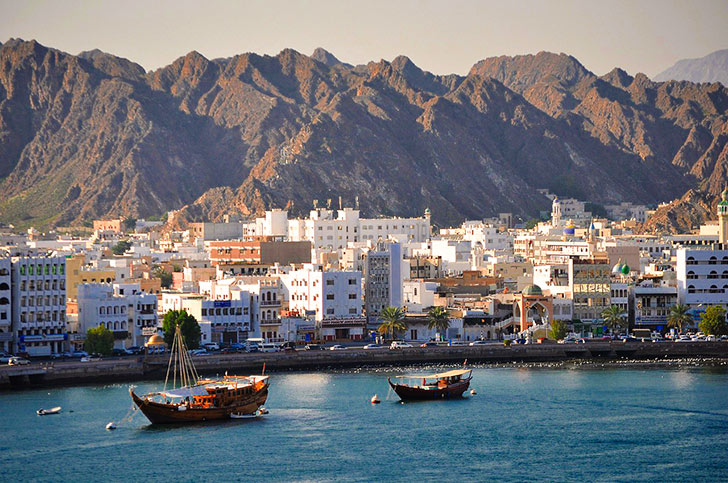
Oman, being the only country listed under “Countries That Start With O,” is increasingly recognized as a top destination for travellers seeking natural beauty and cultural experiences.
- Natural Wonders: The Al Hajar Mountains offer trekking and adventure opportunities, while the Wahiba Sands desert is perfect for those looking to experience the vastness of the Arabian desert.
- Historic Sites: The ancient city of Nizwa, with its historic fort and bustling souk, and the UNESCO-listed Frankincense Trail are must-visit locations.
- Coastal Attractions: Oman’s coastline is dotted with pristine beaches and vibrant marine life, making it a haven for divers and beachgoers.
Final Thoughts on Countries That Start With O
Oman stands out as the sole entry under “Countries That Start With the Letter O,” offering a rich tapestry of history, culture, and natural beauty. From its ancient roots to its modern-day significance, Oman is a country that deserves to be explored and understood.
FAQs about Countries that Start with O
Were there other historic nations whose names began with the letter ‘O’?
Yes, there were two historical states whose names began with the letter ‘O’. These former countries are:
1. Oldenburg
2. Orange Free State
Both of these regions eventually ceased to exist as independent nations, either merging with or being overtaken by larger powers.”
Oldenburg:
Oldenburg, a city in northern Germany, was once the capital of the Duchy of Oldenburg. It held considerable influence within the Holy Roman Empire before losing its autonomy in the late 19th century, as it became part of a unified Germany. Today, Oldenburg is a thriving city in Lower Saxony, known more for its rich heritage than any current geopolitical significance.
Orange Free State:
The Orange Free State was a 19th-century Boer republic in what is now South Africa. Established in 1854, it became a symbol of Afrikaner independence but was later absorbed into the British Empire after the Second Anglo-Boer War in 1902. Its capital, Bloemfontein, remains an important city today, serving as one of South Africa’s three capitals. Though no longer an independent state, the region played a significant role in the country’s complex colonial history, leaving a lasting legacy on South Africa’s political and cultural landscape.
Also read about 10 Fascinating Countries That Start With P

